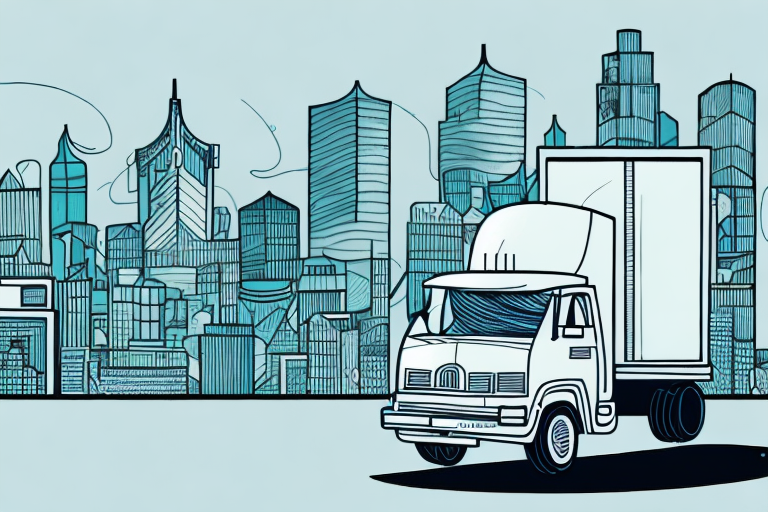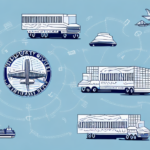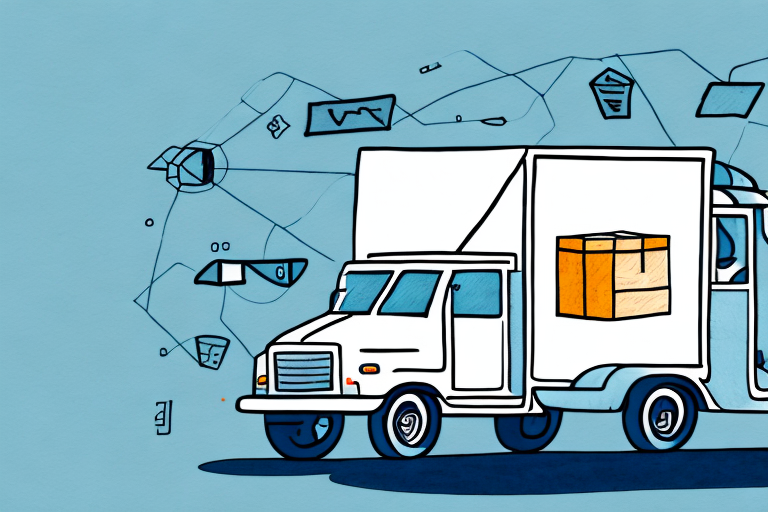Finding Delivery Contracts Near You: What You Need to Know
Are you a business owner looking to secure delivery contracts for your products or services? Navigating the process can be challenging, but with the right strategies and knowledge, you can secure contracts that enhance your business operations. This comprehensive guide explores effective methods to find delivery contracts, understand legal requirements, negotiate favorable terms, and leverage technology to stay ahead in the delivery landscape. Additionally, we'll highlight common pitfalls to avoid and provide actionable insights to help you secure the ideal delivery contract for your business.
1. Strategies to Search for Delivery Contracts in Your Area
Networking with Local Businesses
Initiate connections with local businesses within your industry to identify potential delivery needs. Building relationships through local networking events and industry meetups can open doors to delivery partnerships. According to a Forbes article on networking, businesses that engage in active networking are 50% more likely to secure new contracts.
Utilizing Online Marketplaces
Platforms like Amazon and eBay offer opportunities to partner through their delivery services. These marketplaces often seek reliable delivery partners to handle increased order volumes, especially during peak seasons.
Joining Business Associations and Chambers of Commerce
Membership in local business associations or chambers of commerce provides access to exclusive directories and networking events. These organizations frequently host events that facilitate connections between businesses looking for delivery services and providers offering them.
2. Understanding the Types of Delivery Contracts
Same-Day and Next-Day Delivery
These contracts cater to businesses requiring rapid delivery solutions. With the rise of e-commerce, the demand for expedited delivery services has surged. According to a Statista report, same-day delivery services have grown by over 25% in the past year.
Scheduled and Recurring Deliveries
For businesses with consistent delivery needs, scheduled contracts offer reliability and predictability. This type of contract is ideal for retailers and subscription-based services that require regular restocking of products.
International Delivery Contracts
Expanding your delivery services internationally requires understanding customs regulations and international shipping logistics. Partnering with providers experienced in global logistics can facilitate smooth cross-border deliveries.
3. Benefits of Securing a Delivery Contract
Operational Efficiency
Outsourcing delivery operations through a contract can streamline your logistics, allowing you to focus on core business activities. This can lead to significant time and cost savings, with businesses reporting up to a 30% reduction in delivery-related expenses.
Enhanced Customer Satisfaction
Reliable delivery services ensure that customers receive their orders promptly and in good condition, boosting satisfaction and fostering loyalty. High customer satisfaction can lead to positive reviews and increased repeat business.
Scalability and Flexibility
Delivery contracts offer the flexibility to scale your delivery operations based on demand fluctuations, such as seasonal peaks, without the need for additional in-house resources.
4. Negotiating the Best Delivery Contract Terms
Setting Clear Expectations
Define your delivery requirements, including timelines, pricing structures, and service levels. Clear communication of your needs ensures that both parties are aligned, reducing the risk of misunderstandings.
Flexibility and Customization
Seek contracts that allow for flexibility in delivery schedules and the ability to customize services based on your business needs. This adaptability is crucial for accommodating changes in demand and operational adjustments.
Ensuring Transparent Communication
Establish protocols for regular updates and issue resolution. Effective communication channels between your business and the delivery partner can enhance collaboration and responsiveness.
5. Legal Considerations for Delivery Contracts
Liability and Insurance
Clearly outline responsibilities for lost or damaged goods. Ensure that the delivery partner has adequate insurance coverage to protect against potential liabilities.
Compliance with Regulations
Adhere to local, state, and federal regulations governing delivery services. This includes licensing requirements, safety standards, and environmental regulations.
Contract Terms and Conditions
Review all contract terms meticulously, including payment schedules, cancellation policies, and dispute resolution mechanisms. Consulting with a legal professional can provide additional safeguards and ensure that your interests are protected.
6. Leveraging Technology in Delivery Contracts
Real-Time Tracking and Automation
Advanced tracking systems provide real-time updates on delivery status, enhancing transparency and allowing for proactive management of logistics. Automation tools can streamline order processing and reduce manual errors.
Adoption of Emerging Technologies
Innovations such as drone deliveries and autonomous vehicles are revolutionizing the delivery landscape. Staying abreast of these technologies can offer competitive advantages and improve delivery efficiency.
Data Analytics for Decision Making
Utilize data analytics to monitor delivery performance, customer satisfaction, and operational efficiency. Data-driven insights can inform strategic decisions and optimize delivery operations.
7. Avoiding Common Mistakes in Securing Delivery Contracts
Insufficient Research
Thoroughly research potential delivery partners to assess their reliability, reputation, and capacity to meet your business needs. Inadequate research can lead to partnerships that do not align with your requirements.
Overlooking Scalability
Ensure that the delivery partner can accommodate your business growth and adapt to changing demands. Contracts that lack scalability can hinder your ability to expand effectively.
Neglecting Cost-Benefit Analysis
Evaluate the cost-effectiveness of delivery services by comparing prices with the quality of service offered. Opting for the cheapest option may compromise reliability and customer satisfaction.
8. Future Trends in the Delivery Contract Industry
Increased Automation and Use of Drones
The integration of automation and drone technology is set to transform delivery services, offering faster and more efficient delivery solutions. Industry forecasts predict a significant increase in drone deliveries by 2025, as reported by Internet Society.
Shift Towards Sustainable Deliveries
Environmental sustainability is becoming a priority, with businesses seeking eco-friendly delivery options. This includes the use of electric vehicles and optimized delivery routes to reduce carbon footprints.
Personalization and Enhanced Customer Experiences
Deliveries are becoming more personalized, with options for customized delivery windows and packaging. Enhanced customer experiences are driving higher expectations for delivery services.
Conclusion: Key Takeaways and Next Steps for Securing Your Ideal Delivery Contract
Securing the right delivery contract can significantly enhance your business operations, offering benefits such as operational efficiency, cost savings, and improved customer satisfaction. By implementing effective search strategies, understanding various contract types, negotiating favorable terms, and leveraging technology, you can position your business for success in the competitive delivery landscape. Additionally, being mindful of legal considerations and avoiding common mistakes will help ensure that your delivery partnerships are both reliable and scalable. As the industry continues to evolve, staying informed about future trends will enable your business to adapt and thrive.



















